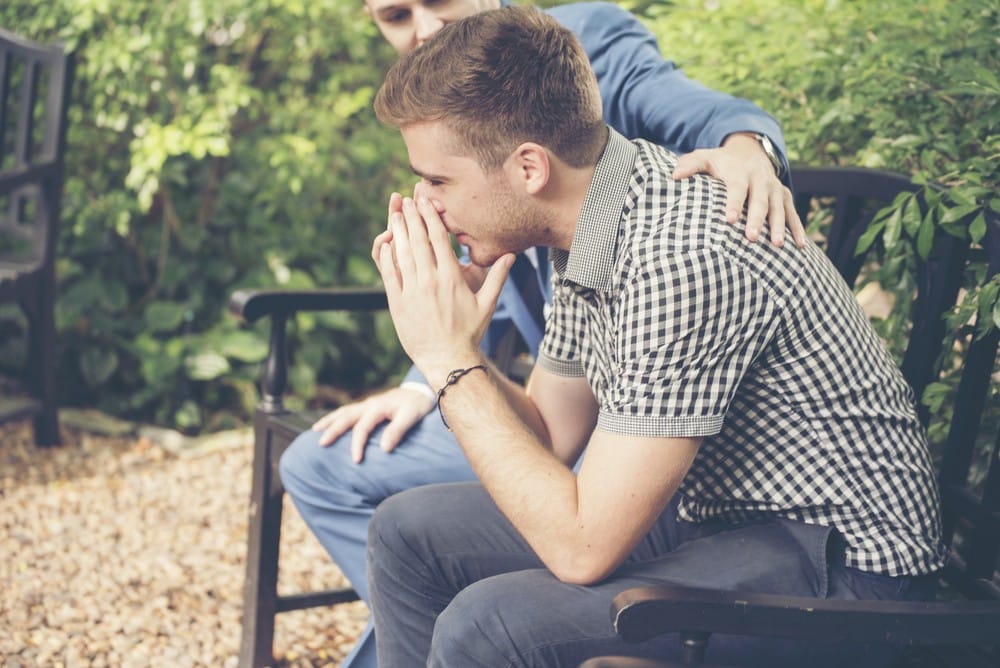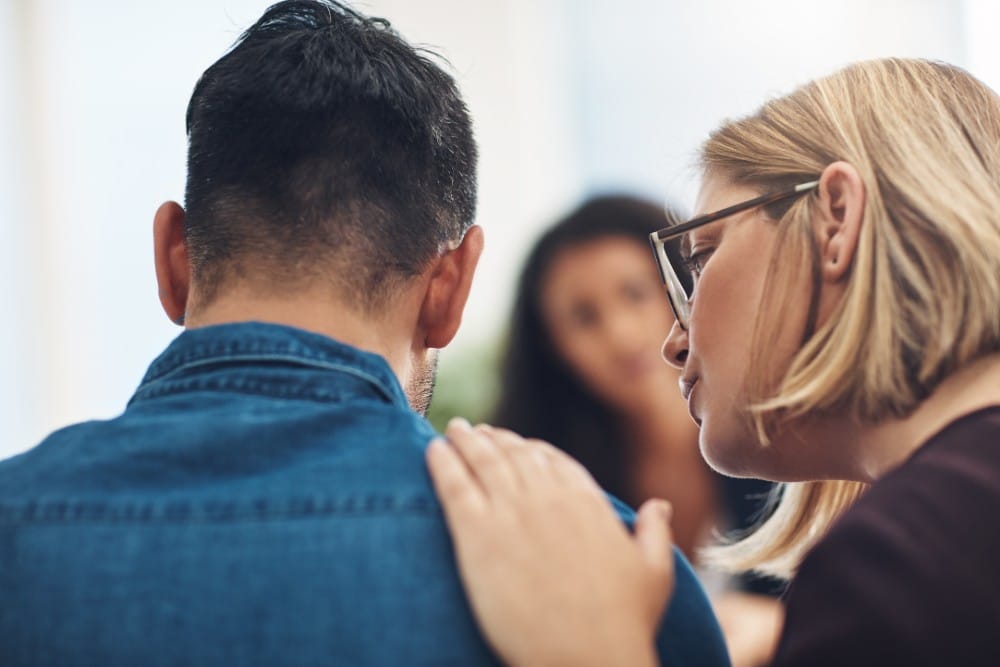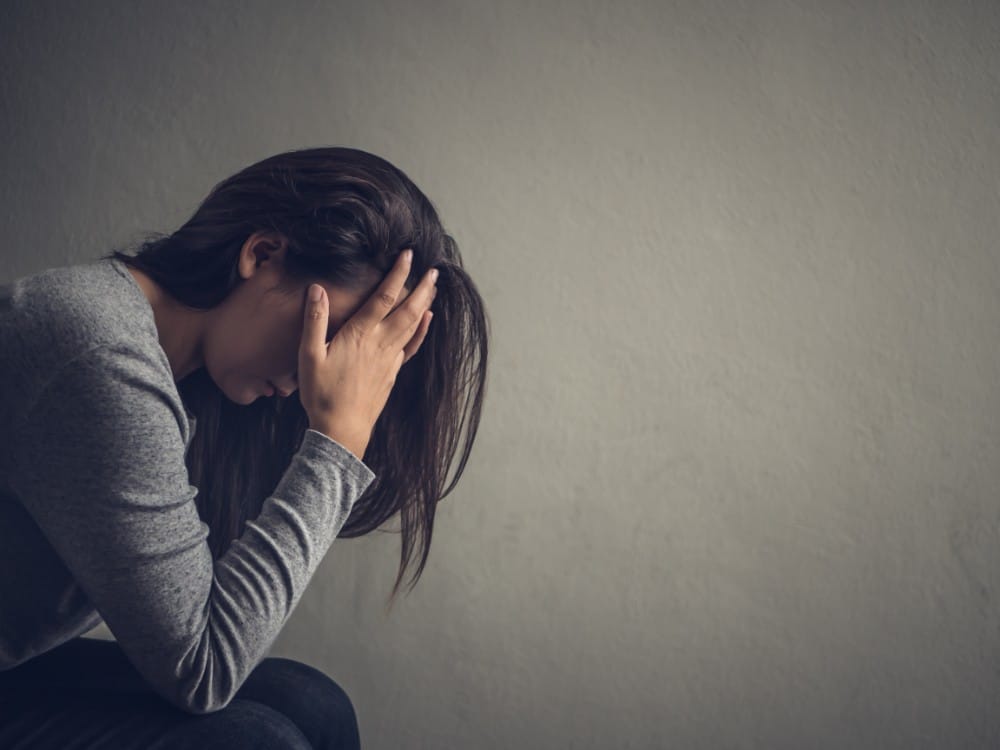
The way people address crisis situations is transforming. This is good news for everyone.
First responders like police, emergency medical technicians (EMTs), and firefighters traditionally approach emergency situations at a physical level.
Mental health isn't something that comes up until the individual becomes a patient or inmate – if it's addressed at all.
Mental health first aid takes a proactive approach by addressing the mental health crisis as it's happening instead of reacting to it later.
What is Mental Health First Aid?

Mental health first aid involves identifying, understanding, and responding to mental health crises and challenges in a manner that helps the sufferer.
The goal is to assist the sufferer as much as possible until help arrives. Those trained in mental health first aid can apply their skills to help people encountering any of these challenges:
- Anxiety and panic attacks.
- Depression and mood disorders.
- Drug and alcohol overdose or withdrawal
- Suicidal thoughts and actions.
- Non-suicidal self-harm.
- Acute psychosis, delusional behavior, and hallucinations.
- Acute shock or other reactions to traumatic events.
According to the National Institute for Mental Health, nearly 18% of all adults in the United States suffer from at least one mental health condition. Furthermore, 4% of adult the population suffer a serious mental illness that directly interferes with their daily lives and actions.
Due to the prevalence of mental illness, understanding how to properly address a mental health crisis can potentially save millions of lives.
Can Anyone Give Mental First Aid?
Yes, and no.
It's important to receive proper training before attempting to administer mental first aid. You don't want to risk escalating the situation even further.
Fortunately, it's fairly simple for average people to become certified in mental first aid. Mental Health First Aid USA offers courses across the country. The course takes eight hours to complete during which you'll learn how to properly execute the five-step intervention process.
1. Assess Risk for Suicide or Harm
When addressing a mental health crisis, the first thing you should do is look for signs of physical self-harm or potential suicidal actions. This might include:
- Threatening to kill oneself or talking about it
- Seeking out means to kill or harm oneself
- Acting recklessly or engaging in dangerous activities
- Feeling hopeless Increased substance abuse
- Withdrawing from friends, family, or activities
- Irritability or a sudden change in mood
2. Listen Nonjudgmentally
Believe it or not, it takes skills to be a good listener. During a mental health crisis, it's important to make someone feel understood, respected, and accepted by listening and having a meaningful conversation. Being a good listener involves both verbal and nonverbal skills such as posture and body language.
3. Provide Reassurance and Information
Make sure you always approach the situation with dignity – no one wants to feel patronized. People suffering a mental health crisis must be reassured that what they're going through is not their fault. Do not blame them for their symptoms.
4. Encourage Relevant Professional Assistance
You want to put the person in touch with professionals that could best address their unique situation. Substance abuse withdrawal requires different assistance than suicidal actions, for example.
If the individual requires immediate help, you'll need to decide if they need medical help from a doctor or psychiatric help from a mental health professional.
5. Encourage Self-help and Other Support Strategies
No one wants to be forced to do anything against their will. If someone isn't ready to seek professional help, encourage them to conduct their own self-help.
Individuals can contribute to their own recovery and wellbeing by building a healthy lifestyle through activities such as:
- Exercise and meditation.
- Peer support groups.
- Self-help books for cognitive behavioral therapy.
- Staying engaged with friends and family members through various means.
As of December of 2017, Lady Gaga's Born This Way Foundation and the National Council for Behavioral Health had trained 150,000 people in mental health first aid. More than one million people in North America have been trained through the Mental Health First Aid USA program including police officers, teachers, and other individuals who work directly with the public.
What Should You Do if You Encounter Someone Who Needs Immediate Mental Health Help?
You can get involved with Mental Health First Aid USA by taking a course or becoming an instructor. Courses are available throughout the country where you'll learn about putting the five steps into practical use.
Even without official training, you can learn how to address a mental health crisis properly. The most important thing to remember is to treat the individual with dignity and respect. Remember that mental illness and substance abuse are diseases. People can and do recover from these conditions.
When you encounter someone suffering a mental health challenge or crisis keep these dos and don'ts in mind:
- Don't blame them for their symptoms.
- Don't encourage self-destructive behavior like substance abuse.
- Don't feed into their sense of hopelessness or despair.
- Do lend a friendly ear and provide meaningful conversation.
- Do encourage they seek help either from a professional or on their own.
- Do call a professional for help with suicidal actions, self-harm, drug overdose, or withdrawal.
When having a conversation, it's important to stay encouraging and supportive. Agreeing with their negative thoughts and despair can make the situation worse. Be respectful and reassuring and call a professional for help.
Are You or a Loved One Going Through a Mental Health Crisis?

Georgetown Behavioral Health Institute is a state-of-the-art psychiatric hospital providing inpatient and outpatient care. They offer comprehensive mental healthcare and other services for adults, teens, active duty military members, and older adults.
Staff members work directly with each patient to develop and implement personalized recovery programs using a broad range of evidence-based techniques. If you or a loved one are in need of mental health help or experiencing a crisis, contact Georgetown Behavior Health Institute today to find out how we can help and learn more about our services. Immediate help is available 24/7 at (512) 819-1154.


